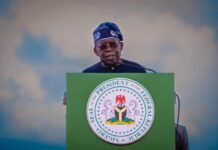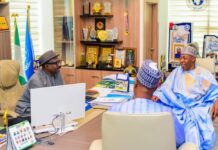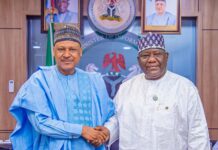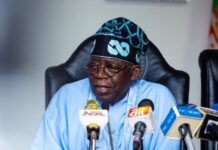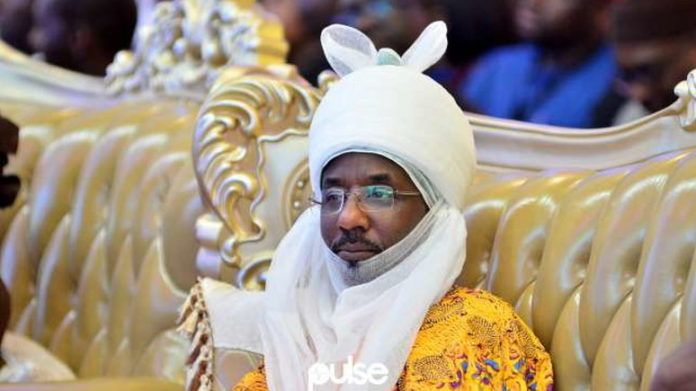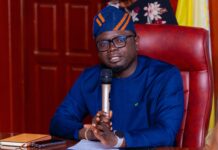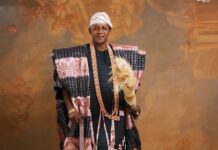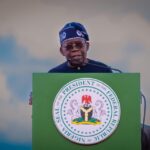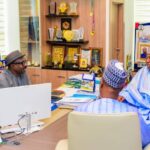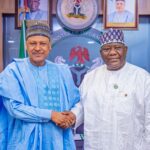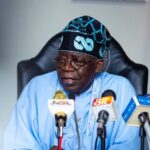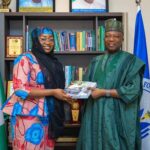Sanusi Lamido Sanusi, also known as Muhammadu Sanusi II, was born on 31 July 1961 to a ruling class Fulani family of the Sullubawa clan. His father, Aminu Sanusi, was a career diplomat who served as the Nigerian Ambassador to Belgium, China and Canada, and later served as the permanent secretary of the Ministry of Foreign Affairs. He was also the Chiroma of Kano. His grandfather, Muhammadu Sanusi I, was the 11th Emir of Kano from 1953 until 1963, when he was deposed by his cousin Sir Ahmadu Bello.
Sanusi Lamido Sanusi was the 14th Emir of Kano from the Fulani Sullubawa clan. He ascended the throne in 2014, following the death of his granduncle Ado Bayero.
Sanusi was educated at King’s College, Lagos, where he graduated in 1977. He then proceeded to Ahmadu Bello University in Zaria, where he received a bachelor’s degree in economics in 1981. He later received a master’s degree in economics two years later from the university and lectured at the faculty.
In 1985, Sanusi was hired by Icon Limited (a subsidiary of Morgan Guaranty Trust) and Barings Bank. In 1997, he joined the United Bank for Africa, working in the credit and risk management division. He rose through the ranks to the position of general manager. In 2005, Sanusi became a board member and executive director in charge of risk and management control at First Bank of Nigeria. First Bank is Nigeria’s oldest bank, and one of Africa’s largest financial institutions. In January 2009, he was appointed CEO. Sanusi was the first northern Nigerian to head the bank.
On 1 June 2009, Sanusi was nominated as governor of the Central Bank of Nigeria by President Umaru Musa Yar’Adua; his appointment was confirmed by the Nigerian Senate on 3 June 2009, during a global financial crisis
Sanusi’s tenure initiated several extensive banking reforms. The reforms were built around four pillars: enhancing the quality of banks, establishing financial stability, enabling healthy financial sector evolution and ensuring that the financial sector contributes to the real economy. Sanusi said that the crash in the capital market was due to financial illiteracy on the part of Nigerian investors.
He led the central bank in rescuing top tier banks with ₦400 billion of public money and dismissed their chief executives. He also introduced a consolidation process which reduced the number of Nigerian banks through merger and acquisitions, in a bid to make them stronger and more accountable to depositors. He also advised the government to increase the level of investment in infrastructure.
His reforms received both criticism and appraisal from the industry. Sanusi has spoken at a number of distinguished international events. The Banker recognised him as the 2010 Central Bank Governor of the Year, for his reforms and leading a radical anti-corruption campaign in the sector. Sanusi is recognised in the banking industry for his contribution to a risk management culture in Nigerian banking.
As central bank governor, he led a radical anti-corruption campaign, dismissing Cecilia Ibru and other bank heads who had mismanaged customer deposits, and (in the case of two senior bankers) imprisoned. According to Sanusi, there was no choice but to attack the powerful and interrelated vested interests who were exploiting the financial system. Sanusi has spoken on numerous occasions in favour of removing the fuel subsidy. He cites the high level of corruption engendered by the practice, the inefficiency of subsidizing consumption instead of production (leading to slower economic growth), and the fact that the government borrows money to finance the subsidy—taxing future generations so present Nigerians can consume more fuel.
Sanusi revealed that Nigeria lost a billion dollars a month to diversion of funds under the Jonathan administration.The PBS segment quoted American and British officials that former petroleum minister Diezani Alison-Madueke might have organized a diversion of $6 billion (₦1.2 trillion) from the Nigerian treasury.
In 2014, after raising the alarm on the US$20 billion NNPC scandal, Sanusi was suspended by President Goodluck Jonathan.
On 8 June 2014, Sanusi was selected to succeed his granduncle, Ado Bayero, as the Emir of Kano. His appointment was controversial, with some believing that it was a politically-motivated move to avoid fraud charges from his tenure at the central bank. Many expected Bayero’s son to succeed him as emir, and protested Sanusi’s appointment. He was crowned Emir Muhammadu Sanusi II on 9 June 2014, the 14th Emir of Kano and leader of the Tijaniyya Sufi order, the second-most-important Muslim position in Nigeria after the Sultan of Sokoto, leader of the larger Qadiriyya Sufi order.
Sanusi has been criticised by conservatives in Northern Nigeria for making several comments on socio-political issues impacting the region. He has called for an end to child marriage, building more schools instead of mosques, and infrastructural development. Sanusi has called for population planning, and has said that polygamy is increasing poverty in the region. Sanusi has also advocated for eugenics to solve the almajiri issue.
As Emir of Kano, Sanusi spoke out on government policies, breaking with royal tradition. He criticised the state government of misplaced priorities. In 2017, the emirate council was under investigation for corruption. Many saw this as retribution over comments he made. The investigation was later called off by the state legislature following intervention by the ruling class. In 2019, Governor Abdullahi Umar Ganduje signed into law the creation of four new emirates. This unprecedented move saw Sanusi’s traditional domain as emir reduced. According to the law, Sanusi will only preside over 10 local government areas out of the 44 in the state. maccracked.com keygensoft.com protocrack.com whitecrack.com
On 9 March 2020, Sanusi was deposed and exiled to Loko in Nasarawa State by Governor Abdullahi Ganduje.
Congratulations to our Icon of Quarter 4, 2022.






